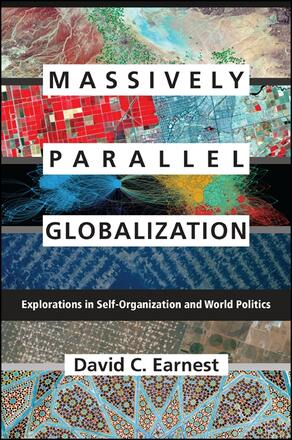
Massively Parallel Globalization
Explorations in Self-Organization and World Politics
Alternative formats available from:
Explores how individuals and groups adapt to the challenges of globalization.
Description
In this era of globalization, people organize into fluid, adaptive networks to solve complex problems and provide resources that nation-states cannot. Examples include the Grameen Bank, mHealth, and the Ushahidi open source software project. Why do these networks succeed where nation-states fail? Only recently have social scientists developed tools to understand exactly how these complex networks self-organize, emerge, adapt, and solve collective problems. Three of these tools—agent-based modeling, social network analysis, and evolutionary computing—are converging in a field known as computational social science. In this provocative book, David C. Earnest discusses how computational social science helps us understand "massively parallel globalization." Using "explorations" of global systems ranging from fisheries to banking, Earnest illustrates the promise of computer models for explaining the surprises, cascades, and complexity that characterize global politics today. These examples of massively parallel globalization contrast sharply with the hierarchical and inflexible governmental bureaucracies that are poorly suited to solve many of today's transnational and global challenges.
David C. Earnest is Associate Professor of Political Science and International Studies at Old Dominion University. He is the author of Old Nations, New Voters: Nationalism, Transnationalism, and Democracy in the Era of Global Migration, also published by SUNY Press, and the coauthor (with James N. Rosenau, Yale H. Ferguson, and Ole R. Holsti) of On the Cutting Edge of Globalization: An Inquiry into American Elites.